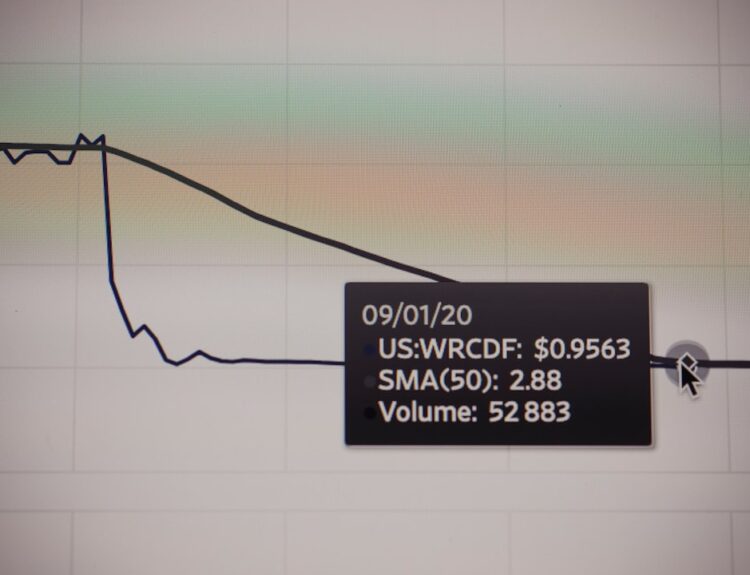A deductible is a fundamental component of many insurance policies, serving as the amount that the policyholder must pay out-of-pocket before the insurance company begins to cover the costs of a claim. This mechanism is designed to share the financial risk between the insurer and the insured, encouraging responsible use of insurance services. For instance, if you have a health insurance plan with a deductible of $1,000, you will need to pay the first $1,000 of your medical expenses before your insurer starts to contribute.
This structure not only helps keep premiums lower but also discourages unnecessary claims, as individuals are more likely to consider the cost of care when they know they have to pay a portion themselves. Deductibles can vary widely depending on the type of insurance and the specific policy. In health insurance, for example, deductibles can range from a few hundred dollars to several thousand.
In auto insurance, deductibles might be set at $500 or $1,000, while homeowners insurance often features deductibles based on a percentage of the home’s value. Understanding how deductibles work is crucial for consumers, as it directly impacts their financial responsibility in the event of a claim. Moreover, the choice of deductible can influence monthly premium costs; typically, higher deductibles result in lower premiums and vice versa.
Factors to Consider When Choosing a Deductible
When selecting a deductible, several factors come into play that can significantly influence your decision. One of the primary considerations is your financial situation. If you have substantial savings or a steady income that allows you to cover higher out-of-pocket costs, opting for a higher deductible may be advantageous.
This choice can lead to lower monthly premiums, which can free up funds for other expenses or investments. Conversely, if your budget is tight or you lack savings, a lower deductible might be more appropriate, as it minimizes your immediate financial burden in the event of a claim. Another critical factor is your risk tolerance.
Individuals who are comfortable taking on more risk may prefer higher deductibles, as they are willing to absorb more costs upfront in exchange for lower premiums. On the other hand, those who prefer predictability and stability in their finances may lean towards lower deductibles. Additionally, it’s essential to consider your health and lifestyle.
For instance, if you frequently visit healthcare providers or have ongoing medical needs, a lower deductible could save you money in the long run despite higher premiums. Evaluating these factors holistically will help you make an informed decision that aligns with your financial goals and personal circumstances.
Types of Insurance Plans and Their Deductibles

Different types of insurance plans come with varying deductible structures that cater to diverse needs and preferences. In health insurance, for example, there are high-deductible health plans (HDHPs) that typically feature deductibles exceeding $1,400 for individuals and $2,800 for families. These plans often pair with Health Savings Accounts (HSAs), allowing policyholders to save money tax-free for medical expenses.
HDHPs can be an attractive option for healthy individuals who do not anticipate frequent medical visits and wish to take advantage of lower premiums. In contrast, traditional health insurance plans usually have lower deductibles but higher premiums. These plans may cover a broader range of services before the deductible is met, making them suitable for individuals with chronic conditions or those who require regular medical care.
Similarly, auto insurance policies often present options for varying deductibles based on the type of coverage selected—comprehensive or collision coverage may have different deductible amounts. Homeowners insurance also varies; some policies may have flat deductibles while others might use percentage-based deductibles tied to the home’s insured value. Understanding these distinctions is vital for consumers as they navigate their options and select plans that best fit their needs.
How to Determine the Right Deductible for Your Budget
| Factors to Consider | Impact on Deductible |
|---|---|
| Financial Situation | Higher deductible may lower premiums but increase out-of-pocket costs |
| Healthcare Needs | Higher deductible may be risky for those with frequent medical needs |
| Budget | Choose a deductible that aligns with your financial capabilities |
| Risk Tolerance | Consider how much risk you are willing to take on in exchange for lower premiums |
Determining the right deductible involves a careful assessment of your budget and financial priorities. Start by evaluating your current financial situation, including your income, savings, and monthly expenses. It’s essential to establish how much you can comfortably afford to pay out-of-pocket in case of an unexpected event.
For instance, if you have limited savings and anticipate potential medical expenses due to ongoing health issues, opting for a lower deductible may provide peace of mind and financial security. Next, consider your risk exposure and how often you might need to file claims. If you live in an area prone to natural disasters or have an older vehicle that may require repairs frequently, a lower deductible could be beneficial.
Conversely, if you are generally healthy and rarely seek medical care or if you drive a newer car with fewer risks of accidents, a higher deductible might be more suitable. Additionally, it’s wise to project potential future expenses based on your lifestyle changes or family planning. By taking these factors into account, you can arrive at a deductible that aligns with both your current financial capabilities and future expectations.
Pros and Cons of High and Low Deductibles
Choosing between high and low deductibles comes with its own set of advantages and disadvantages that can significantly impact your overall insurance experience. High deductibles often lead to lower monthly premiums, which can be appealing for those looking to save on their insurance costs. This arrangement allows individuals to allocate their funds elsewhere while still maintaining coverage for catastrophic events.
However, the downside is that in the event of a claim, policyholders must be prepared to pay a larger sum out-of-pocket before their insurance kicks in. This can create financial strain if unexpected expenses arise. On the other hand, low deductibles provide greater financial protection in times of need since they require less out-of-pocket spending before coverage begins.
This can be particularly advantageous for individuals with ongoing medical needs or those who frequently utilize services covered by their insurance plan. However, the trade-off is typically higher monthly premiums, which can strain budgets over time. Ultimately, weighing these pros and cons requires careful consideration of personal circumstances and preferences regarding risk tolerance and financial stability.
Tips for Managing Your Insurance Costs with the Right Deductible

Managing insurance costs effectively involves strategic planning around your deductible choice. One practical tip is to regularly review your insurance policies and assess whether your current deductible aligns with your changing financial situation or lifestyle needs. For instance, if you experience an increase in income or build up savings over time, it may be worth considering a higher deductible to take advantage of lower premiums.
Conversely, if your financial situation becomes tighter due to unforeseen circumstances such as job loss or increased living expenses, adjusting to a lower deductible could provide necessary relief. Another strategy is to establish an emergency fund specifically designated for covering deductibles when claims arise. By setting aside money each month into this fund, you can ensure that you are prepared for any unexpected expenses without jeopardizing your overall financial health.
Additionally, consider shopping around for different insurance providers and comparing their deductible options alongside premium costs. Many insurers offer discounts or incentives for bundling policies or maintaining a claims-free record; taking advantage of these opportunities can further help manage overall insurance costs while ensuring adequate coverage.
How Your Health and Lifestyle Can Impact Your Deductible Choice
Your health status and lifestyle choices play a significant role in determining the most suitable deductible for your insurance plan. For instance, individuals with chronic health conditions or those who require regular medical attention may benefit from selecting a lower deductible plan. This choice minimizes out-of-pocket expenses when accessing necessary treatments or medications, ultimately leading to better health outcomes without the added stress of financial burden during critical times.
Conversely, if you lead a healthy lifestyle with minimal medical needs—such as regular exercise and a balanced diet—you might find that opting for a higher deductible is more financially advantageous. This approach allows you to save on monthly premiums while still maintaining coverage for unexpected events or emergencies. Additionally, lifestyle factors such as age and family planning can influence this decision; younger individuals without dependents may lean towards higher deductibles due to fewer anticipated claims compared to families with children who may require more frequent healthcare services.
Consulting with an Insurance Professional for Guidance on Deductible Selection
Navigating the complexities of insurance deductibles can be daunting; therefore, consulting with an insurance professional can provide invaluable guidance tailored to your specific needs. These experts possess extensive knowledge about various policies and can help clarify how different deductible options impact overall coverage and costs. They can also assist in evaluating your unique circumstances—such as income level, health status, and risk tolerance—to recommend suitable deductible choices that align with your financial goals.
Moreover, an insurance professional can help you understand any nuances associated with specific policies that may not be immediately apparent during initial research. They can explain how certain deductibles interact with co-pays and out-of-pocket maximums within health plans or how they affect claims processes in auto or homeowners insurance. By leveraging their expertise, you can make informed decisions that not only protect your assets but also enhance your overall financial well-being in the long run.
FAQs
What is a deductible in an insurance plan?
A deductible is the amount of money that the insured individual must pay out of pocket before their insurance company begins to pay for covered expenses.
How does choosing a higher deductible affect my insurance premium?
Choosing a higher deductible typically results in a lower insurance premium. This is because the insured individual is taking on more of the financial risk, so the insurance company charges a lower premium.
What factors should I consider when choosing a deductible for my insurance plan?
When choosing a deductible, consider your financial situation, the likelihood of needing to make a claim, and how much you can afford to pay out of pocket in the event of a claim.
What are the advantages of choosing a higher deductible?
Choosing a higher deductible can result in lower insurance premiums, which can save you money in the long run. It can also discourage filing small claims, which can help keep your insurance rates from increasing.
What are the disadvantages of choosing a higher deductible?
The main disadvantage of choosing a higher deductible is that you will have to pay more out of pocket in the event of a claim. This can be a financial burden if you are not prepared for it.
What are the advantages of choosing a lower deductible?
Choosing a lower deductible means you will have to pay less out of pocket in the event of a claim. This can provide peace of mind and make it easier to manage unexpected expenses.
What are the disadvantages of choosing a lower deductible?
The main disadvantage of choosing a lower deductible is that it typically results in higher insurance premiums. This means you will pay more for your insurance coverage in the long run.



